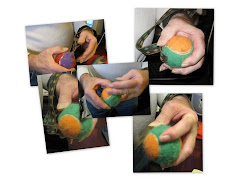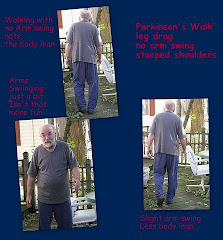It appears that Reverend Robert Schuller's announcement on Sunday, October 12th was more than inaccurate, it was untrue.
In his Hour of Power sermon on Sunday, Reverend Schuller announced that an unnamed friend in Pennsylvania had discovered a cure for Parkinson's disease. He also announced that this medical researcher would be coming in from Pitteburgh to join Rev Schuller "to share with us how God helped him discover a cure." In addition he announced that the information had been triple-checked and the information would soon be published in a London, England, UK medical journal Lancet, a leading worldwide medical journal.
In his Hour of Power sermon on Sunday, Reverend Schuller announced that an unnamed friend in Pennsylvania had discovered a cure for Parkinson's disease. He also announced that this medical researcher would be coming in from Pitteburgh to join Rev Schuller "to share with us how God helped him discover a cure." In addition he announced that the information had been triple-checked and the information would soon be published in a London, England, UK medical journal Lancet, a leading worldwide medical journal.
Needless to say this announcement sparked immediate hope in his listeners suffering from or knowing others who suffered from PD and other neurological-based diseases. They in turn spread the word to more folks. But it also sparked concern among the medical community and medical reporters who had heard nothing of a cure on the horizon.
This concern included Dr Peter Jannetta, Vice Chairman of the Department of Neurosurgery and director of the Center for Cranial Nerve disorders at Allegheny General Hospital in Pittsburgh, Pa. A hospital spokesperson, Dan Laurent, issued a statement of regret saying that any research being conducted is in its earliest stages.
Dr Jannetta's previous publications have appeared in the New England Journal of Medicine, the Journal of the American Medical Association and journals of Neurology, Neurosurgery and Pediatric Neurosurgery.
The real question is WHY?
This kind of action is more than toying with emotions of a most vulnerable set of people because it appears to involve providing not just false hope but inaccurate information. One of the most damaging effects is that people stop donating to Parkinson's research because they think that there is a cure. Dr Schuller's pronouncement did spark certain belief, hope and possibly donations among some members of the Parkinson's community.
sources: Jennifer Muir, The Orange County Register














No comments:
Post a Comment
Welcome to Parkinsons Focus Today.
We are delighted to hear from you by comment here
or through email as found in Contact Us.
Please do not include email addresses if leaving a comment online.
Email addresses are used only for email responses.
Spammers take note: your messages will not be published. The comments section is for an exchange of ideas, not for backlinks.